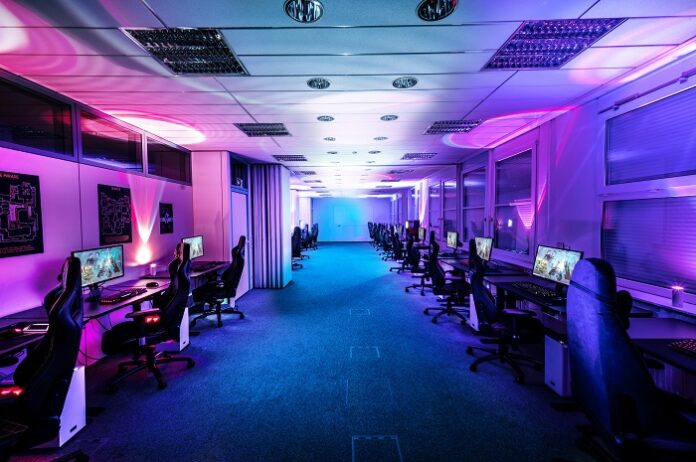In the dynamic world of digital entertainment, a game design company plays a pivotal role in shaping experiences that captivate and engage players around the globe. These companies are not just creators of games; they are architects of immersive worlds, storytellers, and innovators in interactive media.
The Core of Game Design Companies
Every game design firm is dedicated to creating unforgettable gaming experiences. This necessitates a multidimensional strategy that combines creativity, technical competence, and a thorough grasp of player psychology.
- Innovative Storytelling. A compelling narrative is essential in engaging players, making storytelling a critical component of game design.
- Advanced Technology. Utilizing cutting-edge technology and software tools enables the creation of visually stunning and technically robust games.
Understanding Player Psychology
A successful game design business studies the psychology of its target audience. Understanding what motivates, challenges, and engages players is critical in building games that resonate and maintain player interest.
- Engagement Mechanics. Implementing game mechanics that are challenging yet rewarding is vital to maintaining player interest.
- Balancing Difficulty. Games should be accessible to newcomers while offering depth and complexity to more experienced players.
The Role of Art and Aesthetics
The visuals and art style considerably influence the player’s experience. A game design business works with talented artists and designers to develop visually appealing settings, characters, and animations that enhance gameplay.
- Unique Art Styles. From realistic 3D graphics to charming 2D art, the visual design helps set the tone and atmosphere of the game.
- Animation and Effects. Smooth animations and eye-catching effects contribute to the overall aesthetic and feel of the game.
Balancing Creativity with Technical Feasibility
While innovation is necessary, a game design business must balance creative vision and technological practicality. A critical problem is ensuring that games are both inventive and playable.
- Optimization. Efficient coding and optimization ensure that games run smoothly across various platforms.
- Playtesting. Regular testing is crucial for identifying and fixing bugs and gauging player experience.
The Evolution of Game Genres
Game design firms constantly innovate, experimenting with new genres and gameplay approaches. These firms push the boundaries of what games can be, from traditional genres to experimental forms.
- Exploring New Genres. Experimentation with different genres helps in finding new ways to engage players.
- Hybrid Genres. Combining elements from various genres can lead to innovative and unique gaming experiences.
Embracing Emerging Technologies
A forward-thinking game design business keeps ahead of the curve by adopting evolving technology. Augmented reality (AR), virtual reality (VR), and artificial intelligence (AI) are altering the gaming scene, allowing for new immersive experiences.
- AR and VR. These technologies create deeply immersive environments, allowing players to experience new games.
- AI in Gaming. AI can be used to create more intelligent and adaptive game environments, enhancing player interaction and realism.
The Importance of Sound Design
Often underrated, sound design is a crucial element in game creation. A game design company employs talented sound designers and composers to create audio that complements and enhances the gaming experience.
- Immersive Audio. Well-crafted soundtracks and sound effects can significantly boost a game’s immersion and emotional impact.
- Dynamic Soundscapes. Adaptive audio that changes based on player actions adds depth and realism to the gameplay.
Building a Community Around Games
In today’s digital age, fostering a community around games is vital. A game design company often engages with its audience through social media, forums, and beta testing to build a loyal fan base.
- Feedback Loop. Community feedback is invaluable for refining game design and addressing player concerns.
- Engagement Beyond the Game. Creating an active community around a game extends its lifespan and builds brand loyalty.
Challenges and Adaptations in the Industry
The gaming industry is fast-paced and ever-changing, presenting game design companies with numerous challenges. Adapting to new trends, evolving player preferences, and staying competitive requires agility and foresight.
- Trend Adaptation. Keeping up with industry trends ensures that games remain relevant and appealing.
- Innovation. Continuously innovating in-game mechanics, storytelling, and technology keeps a company ahead in the competitive market.
Conclusion
A game design firm exists at the crossroads of art, technology, and entertainment, creating experiences beyond traditional media. These firms continue transforming the game industry by blending creativity with technological skill, understanding user psychology, embracing new technology, and promoting community interaction. As technology evolves and player expectations change, game design firms will continue to play an important role in moulding the future of digital entertainment, building worlds that fascinate challenge, and thrill gamers worldwide.





